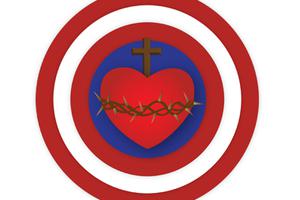The Sower’s Great Risk
User's Guide to Sunday, July 13

Sunday, July 13, is the 15th Sunday in Ordinary Time (Year A).
Mass Readings
Isaiah 55:10-11, Psalm 65:10-14, Romans 8:18-23, Matthew 13:1-23 or 13:1-9
Our Take
Today’s Gospel, the Parable of the Sower, shows the great risk inherent in Jesus’s sacrifice on the cross: Not only did he live and die for us, he did so with no guaranteed result. The results of his sacrifice are entirely in our hands.
We already understand how this works with material things. God gives abundantly the material things we need, as the first reading shows — but we need to cooperate with him to be able to use them.
“The rain and snow come down and do not return,” says Isaiah, “till they have watered the earth, making it fertile and fruitful, giving seed to the one who sows and bread to the one who eats.”
If we freely decide to use God’s material gifts, we will benefit most from them. If we sow, harvest, mill and cook, we get bread. If we freely decide not to put forth the effort, the results will be worse for us.
St. Paul’s letter refers to a similar situation in God’s grace. “I consider that the sufferings of this present time are as nothing compared with the glory to be revealed for us,” he writes to the Romans. In the spiritual order, our cooperation means that we ourselves become “firstfruits” of the Spirit.
The Gospel makes the comparison explicit: “A sower went out to sow,” Jesus says, and describes what happens to the seed that falls in rocky areas, weedy areas or in sun-baked areas.
The seed is the word of God, he explains, and how it is received is critical: The distractions of the world crowd it out, the weakness of the flesh can’t hold it or the trickery of the devil steals it away.
But when Jesus talks about the word of God being sown into the ground, it is hard not to think of the Gospel of John. That Gospel starts by describing Jesus himself as the Word: “In the beginning was the Word, and the Word was with God … and the Word was made flesh and dwelt among us.”
Later in John, on the eve of the Passion, Jesus, the Word of God, describes how his mission will reach fulfillment: “Amen, amen, I say to you, unless a grain of wheat falls to the ground and dies, it remains just a grain of wheat; but if it dies, it produces much fruit.”
So the Parable of the Sower becomes literally true in the Passion: The Word of God is sown, killed and buried only to emerge in the Resurrection and in the Body of Christ.
As a result of that sacrifice, we all have access to his grace — if we embrace it — just as we all have access to the fruits of the earth if we use them.
Jesus is the Word of God sown in the soil. He did his part. He allowed himself to be cast down from heaven to the roadways of the earth.
He is not naïve: He knew that many people would not take him up on his offer. Many will let the cares of the world, the superficialities of life or the glamor of evil nullify what he has done. As he says in today’s Gospel, “Gross is the heart of this people; they will hardly hear with their ears; they have closed their eyes …”
His sacrifice is subject to our freedom. For now. Later, our freedom will become subject to his justice.
But for those who respond, he will give abundantly and eternally.
Tom and April Hoopes write from
Atchison, Kansas, where Tom is
writer in residence at Benedictine College.
- Keywords:
- July 13-26, 2014

















